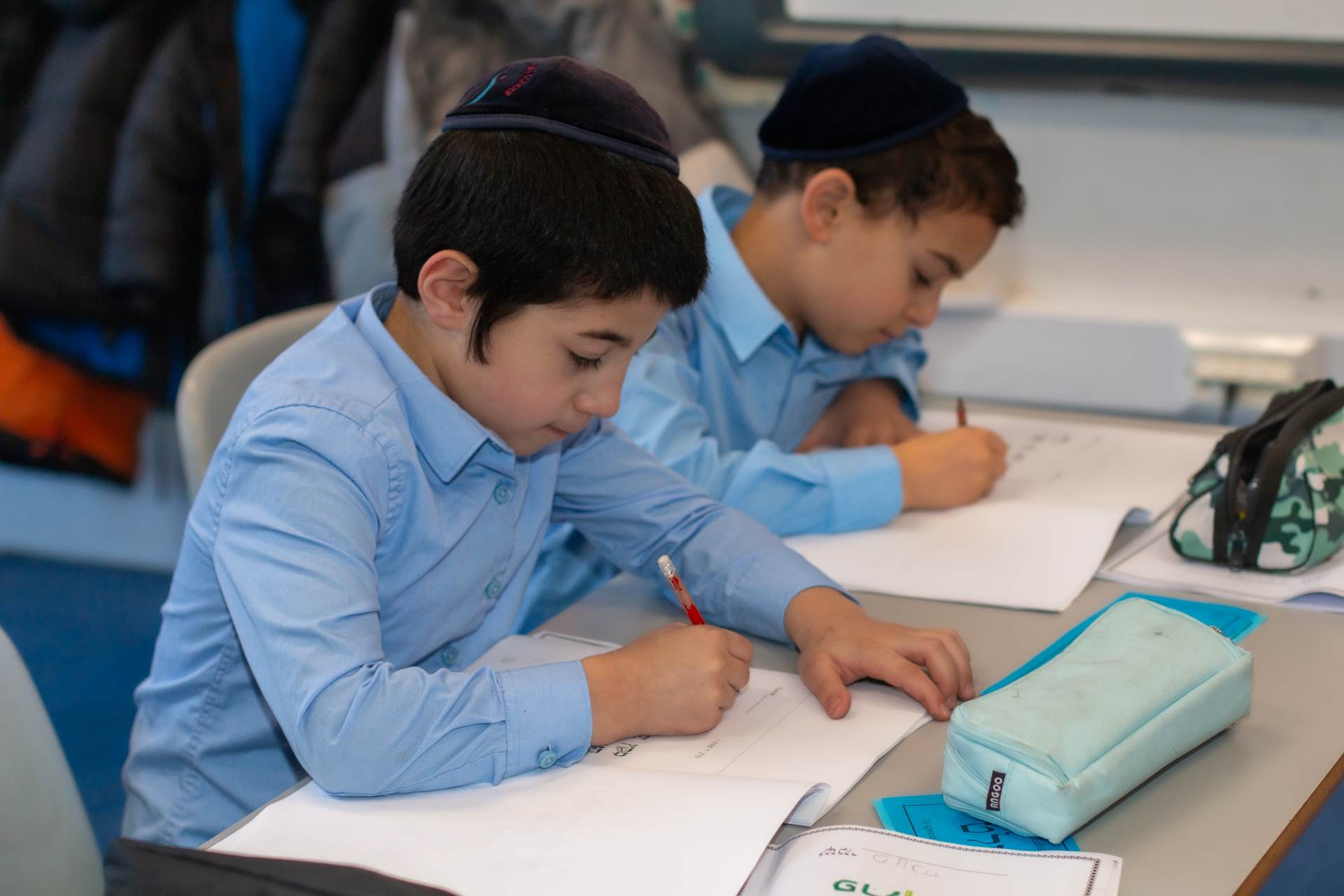
Curriculum
It is never too soon to acquire the leadership qualities of kindness, tolerance, and teamwork. In the classroom and the playground, even Lubavitch’s youngest students acquire these attributes while learning about our Jewish heritage, our Torah traditions and British Values.
At Lubavitch Primary Boys’ School a balanced curriculum is studied covering a wide variety of subjects.
Including, Torah, Jewish Law, Jewish History, English, Maths, Science, Music, Art, Humanities, ICT, PE.
Curriculum Intent
We ensure that all children have a broad, balanced and relevant education which provides continuity and progression and considers the needs of all learners. Our curriculum is exciting and inspires children to nurture a passion for learning. We aim to teach our pupils how to grow into positive, responsible people, who are aware and proud of their Jewish heritage and traditions.
Curriculum Vision
Curriculum Aims
We follow the National Curriculum; it sets out subjects and content which we must teach. Within this however, there is flexibility (being an academy) so that we can interpret and plan to meet the needs and interests of our children now and for the future.
The key aims for all our teaching and learning are:
- To provide opportunities for all pupils to learn, to enjoy and to achieve
- To educate students according to the wellsprings of the Lubavitch principles.
- To provide a vibrant, happy and safe environment in which all people can share positive experiences and feel valued
- We encourage and stimulate the best possible progress and the highest attainment for all our pupils. Our curriculum builds on pupils’ strengths, interests and experiences and develops children’s confidence in their capacity to learn and work independently and collaboratively
- To assist everyone in acquiring the skills to learn independently, interdependently and work as a team
- We place great importance on the skills of literacy, maths and problem-solving. We promote skills that help our learners to improve their own learning and performance and that help them to work well with others
- To help each child adopt healthy lifestyles with a sound knowledge and understanding of the factors that affect their physical and mental health and emotional well-being
- We place a high priority on developing pupils’ physical skills, self-esteem and emotional well-being. We encourage them to recognise the importance of pursuing a healthy lifestyle and keeping themselves and others safe both physically and online. We promote happy, effective relationships that are based on respect for themselves and for others
- To help each child develop a good understanding of right and wrong, respect and treat each other as equals and become decent and responsible citizens. We do this through teaching knowledge and understanding of the spiritual, moral, social and cultural heritages of Britain’s diverse society and of the local, national, European, Commonwealth and global dimensions of pupils’ lives. We want everyone in our school to understand and appreciate their own and different beliefs and cultures, and how these influence our communities
- To encourage confidence and high aspirations so everyone realises their full potential and talents
- We provide rich and varied contexts for pupils to acquire, develop and apply a broad range of knowledge, understanding and skills. Doing so enables our pupils to think creatively and critically, to solve problems and to make a difference for the better
- We promote pupils’ spiritual, moral, social and cultural development and the differences between right and wrong, and that we have rights but also responsibilities. We want everyone in our school to be responsible and caring citizens who make positive contributions to the communities
Curriculum Accessibility
We are committed to providing a fully accessible environment which values and includes all pupils, staff, parents and visitors regardless of their education, physical, sensory, social, spiritual, emotional and cultural needs. Our aim is not only for the physical environment to be accessible to all, but also for every pupil to have access to all aspects of our Curriculum and to improve the delivery of information to pupils, staff, parents and visitors with disabilities. We are committed to challenging negative attitudes about disability and accessibility and to further developing a culture of awareness, tolerance and inclusion. To support our achievement of these aims we are required to review and produce an Accessibility Plan. Please click here to view our Accessibility Plan.
Educational visits
Our school believes very much in the importance of enhancing our pupils’ school experience through outings to places of interest in our rich and diverse capital city, as well as visitors and workshops in school. Parents are often invited to make a voluntary contribution towards the cost of these visits and curriculum-linked school workshops. In Year 6, the children participate in a residential trip in addition to other special post-SATs outings and undergoing Safe Cycling Training.
